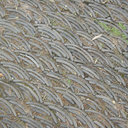Arabic
Albanian
Arabic
Armenian
Azerbaijani
Belarusian
Bengali
Bosnian
Catalan
Czech
Danish
Deutsch
Dutch
English
Estonian
Finnish
Français
Greek
Haitian Creole
Hebrew
Hindi
Hungarian
Icelandic
Indonesian
Irish
Italian
Japanese
Korean
Latvian
Lithuanian
Macedonian
Mongolian
Norwegian
Persian
Polish
Portuguese
Romanian
Russian
Serbian
Slovak
Slovenian
Spanish
Swahili
Swedish
Turkish
Ukrainian
Vietnamese
Български
中文(简体)
中文(繁體)
Journal of Ethnopharmacology 2019-Oct
يمكن للمستخدمين المسجلين فقط ترجمة المقالات
الدخول التسجيل فى الموقع
يتم حفظ الارتباط في الحافظة
قاعدة بيانات الأعشاب الطبية الأكثر اكتمالا التي يدعمها العلم
- يعمل في 55 لغة
- العلاجات العشبية مدعومة بالعلم
- التعرف على الأعشاب بالصورة
- خريطة GPS تفاعلية - ضع علامة على الأعشاب في الموقع (قريبًا)
- اقرأ المنشورات العلمية المتعلقة ببحثك
- البحث عن الأعشاب الطبية من آثارها
- نظّم اهتماماتك وابقَ على اطلاع دائم بأبحاث الأخبار والتجارب السريرية وبراءات الاختراع
اكتب أحد الأعراض أو المرض واقرأ عن الأعشاب التي قد تساعد ، واكتب عشبًا واطلع على الأمراض والأعراض التي تستخدم ضدها.
* تستند جميع المعلومات إلى البحوث العلمية المنشورة





